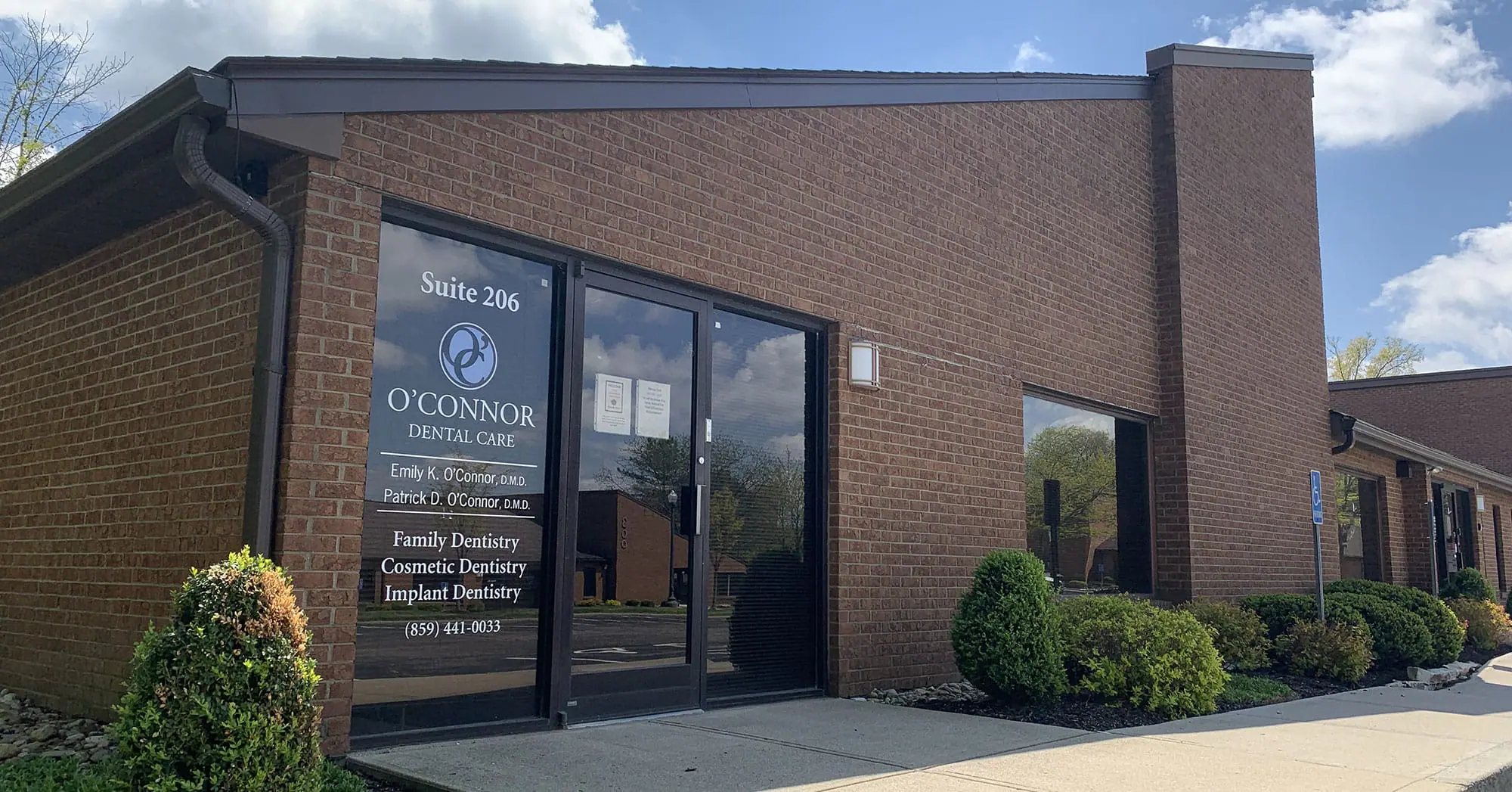Restorative dentistry in Fort Thomas
Restorative dentistry refers to work that dentists do to restore the appearance and function of a person’s smile, such as replacing or repairing missing or damaged teeth.
Restorative dentistry typically includes treatments to “fix” problems, such as filling in cavities in the teeth with natural-looking resin composite fillings, as well as prosthetic devices such as crowns, bridges, and implants to restore the look and function of your smile. Dr. Emily uses a wide variety of techniques, materials, and procedures to expertly repair damaged, broken, and/or missing teeth, restoring perfect function, while also restoring the beauty and stability of your smile.

Things to Consider About Restorative Dental Work
If you’ve had problems with your teeth caused by disease or injuries that have resulted in damaged, missing, broken, cracked, or chipped teeth, or if you’ve lost teeth as a consequence of periodontal disease, our capable dentists can help you to restore the strength and beauty of your smile. Whether you need a filling or a crown, a bridge or an implant, or any procedure to restore your mouth’s function and cosmetic appearance, our friendly and knowledgeable dentists can help you by replacing damaged or missing pieces as well as stabilizing and fortifying your remaining teeth.
Goals of Restorative Dentistry
The goal of restorative dentistry is simply to restore your teeth and gums to their healthiest condition, restoring both the aesthetic appeal as well as the comfort and function of your smile.
Types of Restorative Dental Treatments
Treatments such as resin composite dental fillings, veneers or crowns, dental implants, and porcelain bridges are common restorative procedures that help bring back the look and function of your smile as it was before any damage occurred. We also provide dental root canal therapy to protect existing teeth from tooth loss. When a good dentist performs restorative work, it simply looks like a beautiful, healthy mouth in which everything is functioning optimally. Good restorative work should blend in seamlessly with the other remaining healthy teeth in your mouth.
Dr. Emily provides comprehensive dental care with an extremely gentle touch, and our staff will make sure you relax and feel absolutely comfortable while we restore your smile. We offer various types of pain relief in the form of injections, topical anesthesia, and/or nitrous oxide to prevent any discomfort that you may experience during any procedure. Once the anesthesia wears off, you may take over-the-counter pain medication.
In addition to fixing issues in your existing teeth, we also provide custom-fit full & partial dentures that can replace missing teeth and improve your smile.
Restorative Dentistry FAQ
When your teeth suffer damage, decay, or trauma, restorative dentistry restores both function and beauty. These treatments are designed to strengthen your bite, protect vulnerable teeth, and renew your confidence in your smile. At O’Connor Dental Care, we focus on providing personalized solutions that look natural, feel comfortable, and stand the test of time. Below are answers to common questions patients ask about these treatments.
Any tooth that’s cracked, broken, chipped, deeply decayed, fractured, or missing may need restorative care. Even once-repaired teeth can deteriorate over time if new decay sets in. If you experience sensitivity, pain, biting pressure changes, or visible damage, that’s a strong signal to explore restorative options.
Dentists rebuild teeth using a variety of materials, depending on the case. Common choices include composite resin (tooth-colored fillings), dental crowns (made from porcelain, ceramic, porcelain-fused-to-metal, or zirconia), inlays and onlays, full or partial dentures, or full-coverage overlays. In more extensive cases, post-and-core or dental implants may serve as foundational support beneath crowns.
Yes — a crown does not make a tooth immune. If decay develops at the margin (the edge where the crown meets the natural tooth) or if the crown becomes loose, bacteria can infiltrate underneath. That’s why good oral hygiene and routine dental checks are critical. If caught early, we may repair or replace the crown before the tooth is lost.
In some cases, yes. If the crown is firmly bonded, removal may require careful techniques to preserve both the crown and the underlying tooth. But once removed, a crown generally isn’t re-cemented in the same way—it’s more common to make a new one. Whether reusing depends on how well the crown and tooth fared during removal.
While a root canal (endodontic therapy) is technically a treatment to save a tooth’s internal structure (nerve and blood supply), it’s intimately tied to restorations. After a root canal, the tooth is often weakened, so we restore it with a crown, post, or onlay to protect it and restore chewing strength. In that sense, root canals and restorations often go hand in hand.
The strongest durable filling materials are those that resist wear and fracture under biting forces. For posterior teeth, composite resins reinforced with glass or ceramic are among the strongest long-term options. Metal (gold or amalgam) has historically offered great strength, but modern ceramics provide excellent stability, along with superior aesthetics.
You may want to consider dentures if you’ve lost several teeth, have teeth that are severely damaged, or struggle with chewing and speaking because of missing teeth. Our dental staff can help you determine if full or partial dentures are a possible solution for your mouth.
Start Your Restorative Dentistry Journey
Your smile deserves the strongest, most durable solution tailored to your needs. Call O’Connor Dental Care today to schedule a consultation. Let us restore your confidence, one tooth at a time.





